LET'S MAKE A DEAL

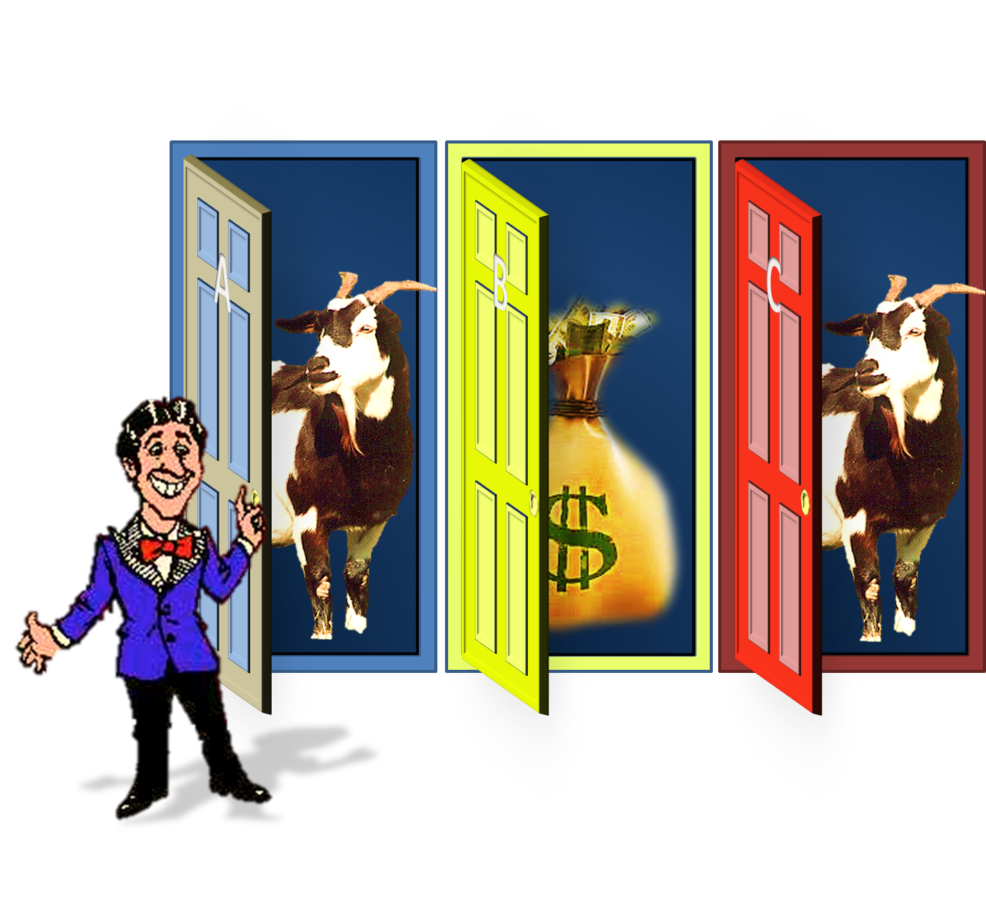
The Monty Hall Problem
Chris Miles
11/7/2015
You win!
Problem

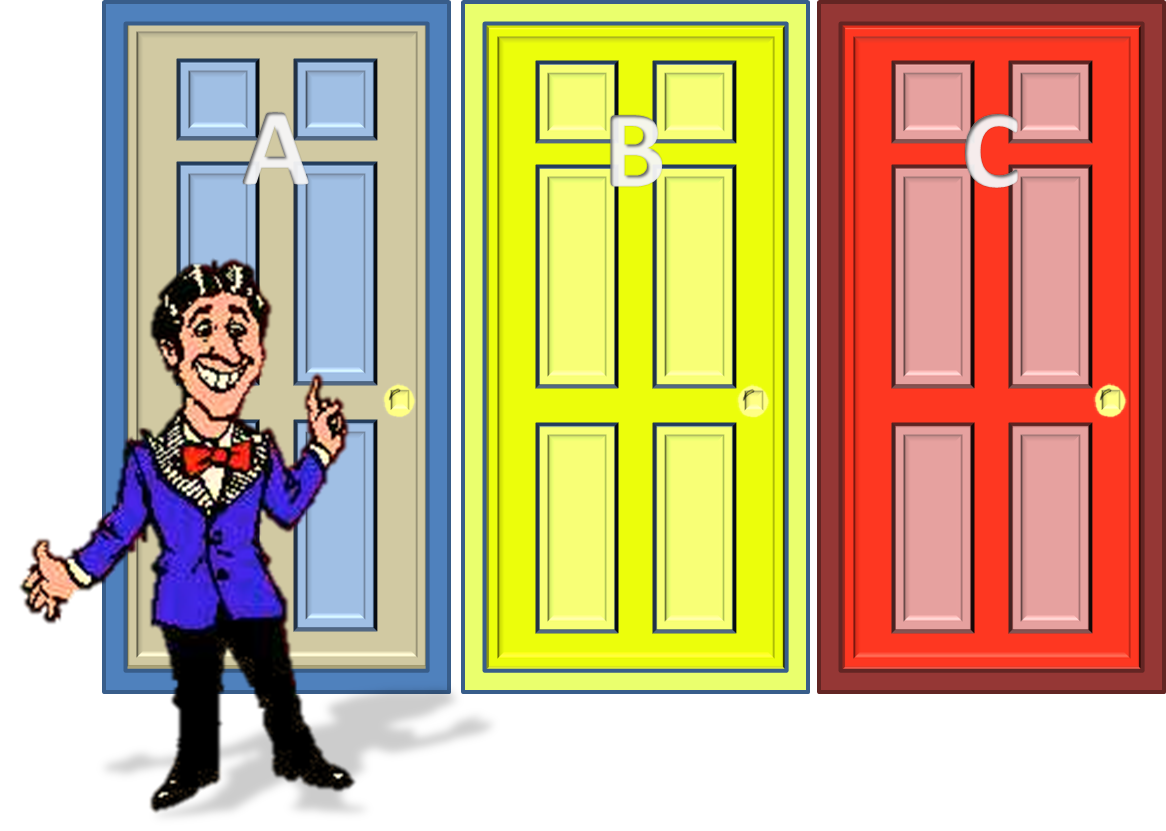
1
3
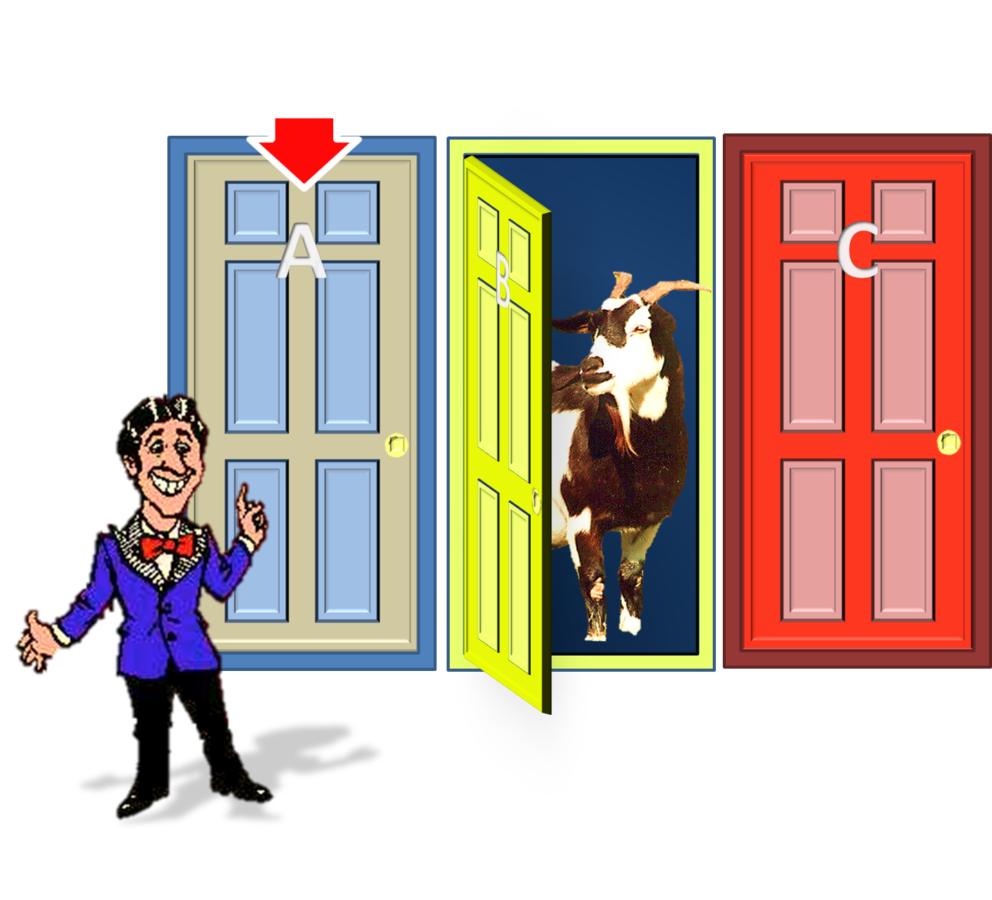
2
SWITCH
STAY
History
History
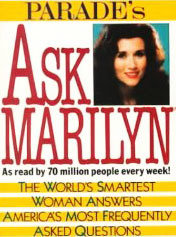
You blew it, and you blew it big! Since you seem to have difficulty grasping the basic principle at work here, I’ll explain. After the host reveals a goat, you now have a one-in-two chance of being correct. Whether you change your selection or not, the odds are the same. There is enough mathematical illiteracy in this country, and we don’t need the world’s highest IQ propagating more. Shame!
Scott Smith, Ph.D., University of Florida
May I suggest that you obtain and refer to a standard textbook on probability before you try to answer a question of this type again?
Charles Reid, Ph.D., University of Florida
Maybe women look at math problems differently than men.
Don Edwards, Sunriver, Oregon
You are the goat!
Glenn Calkins, Western State College
SWITCH
STAY
Why?

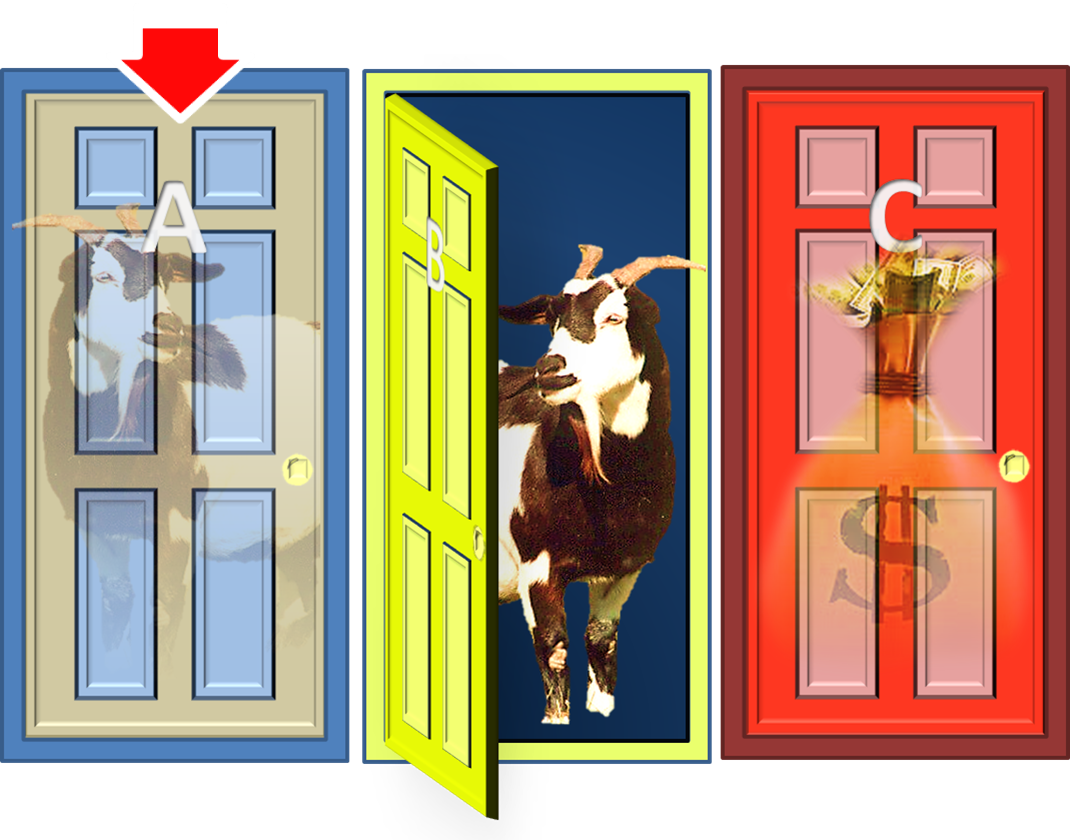
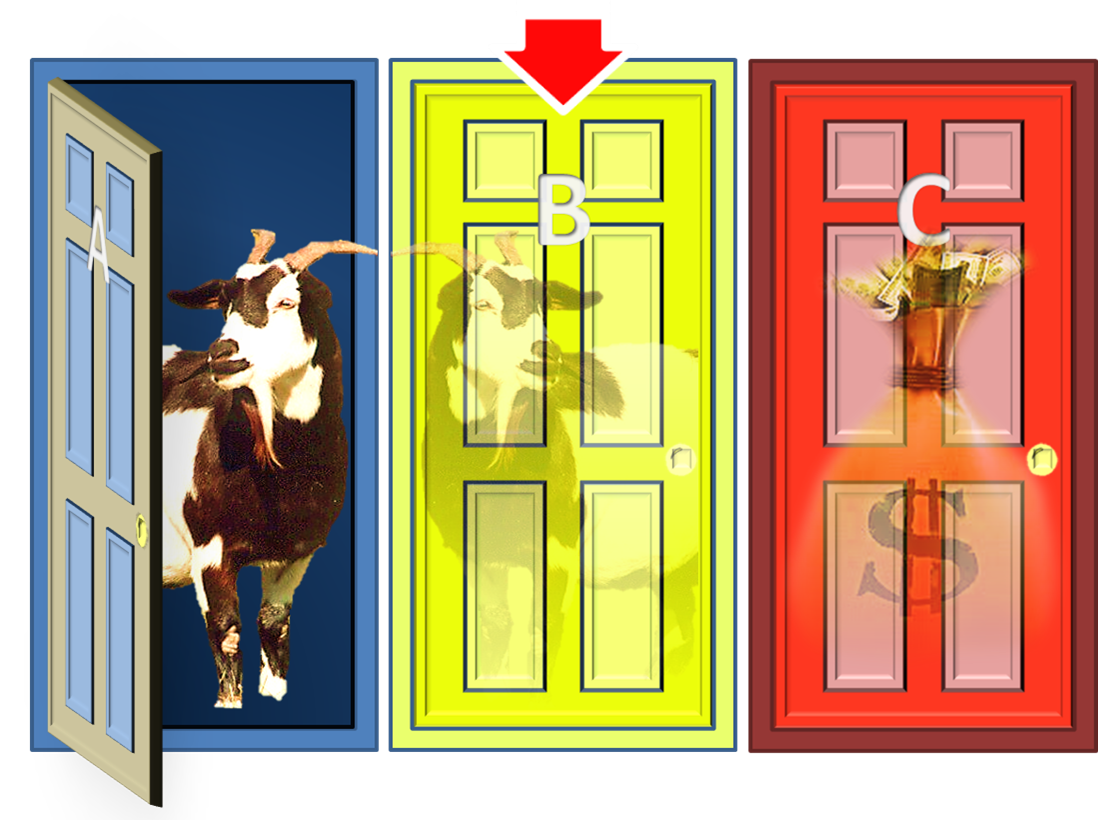
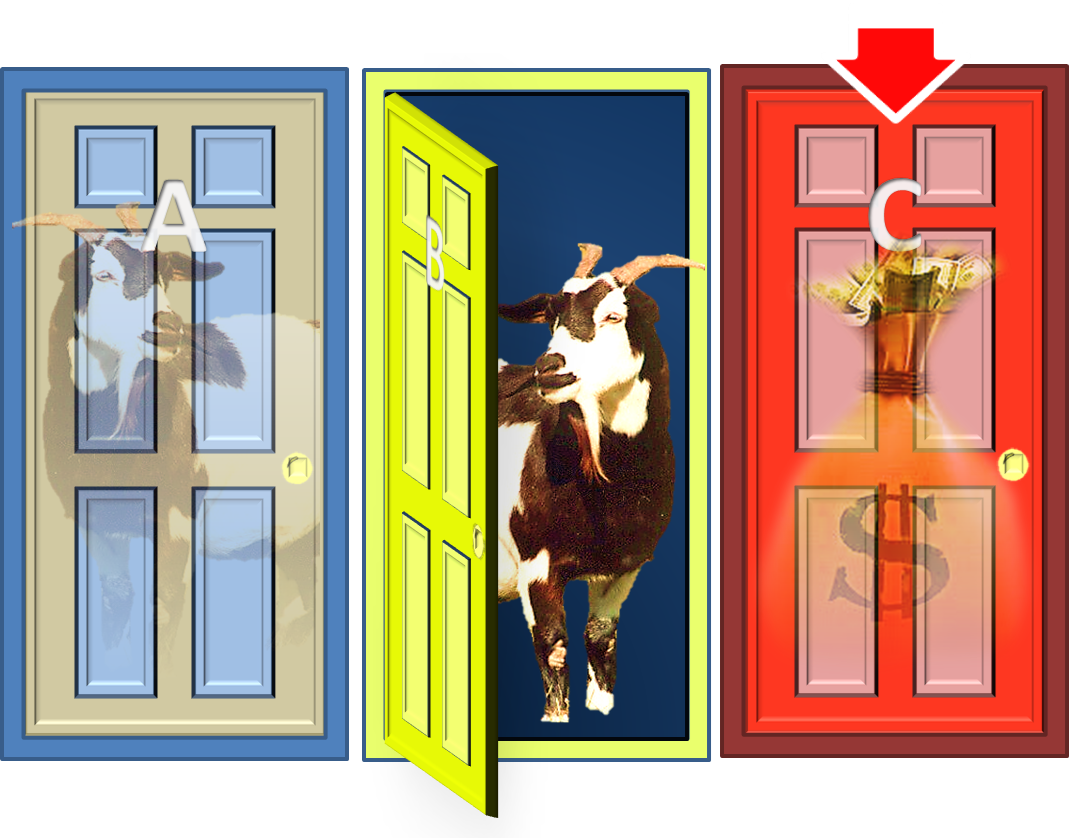
1
2
3
Three possibilities
Stay
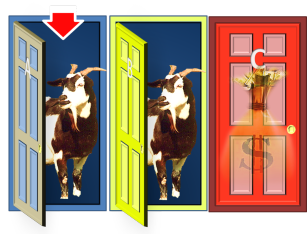
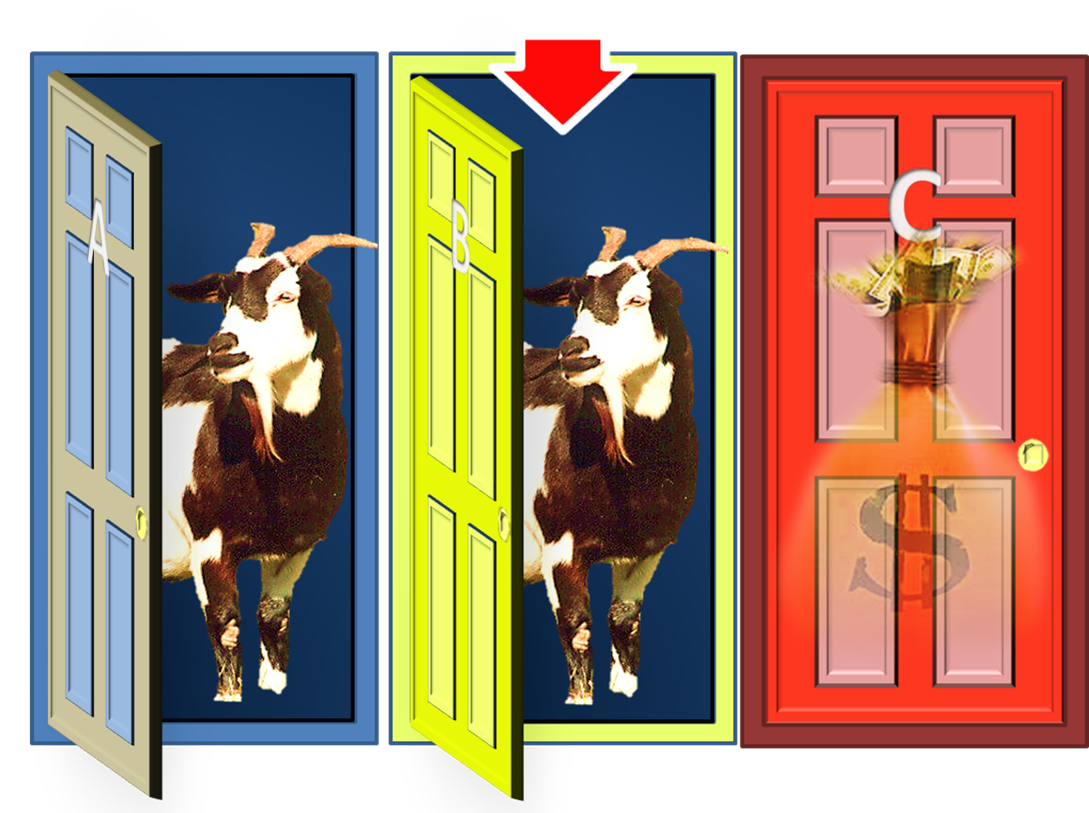
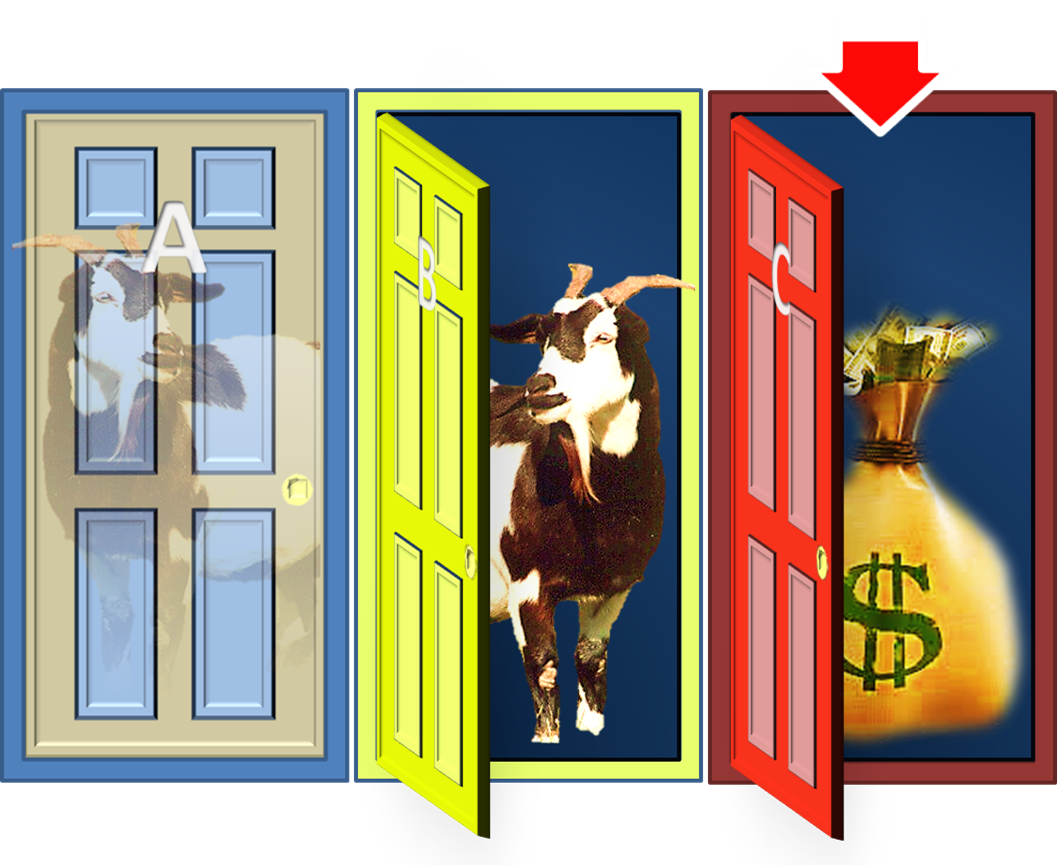
LOSE
LOSE
WIN
Probability of winning = 1/3
Switch
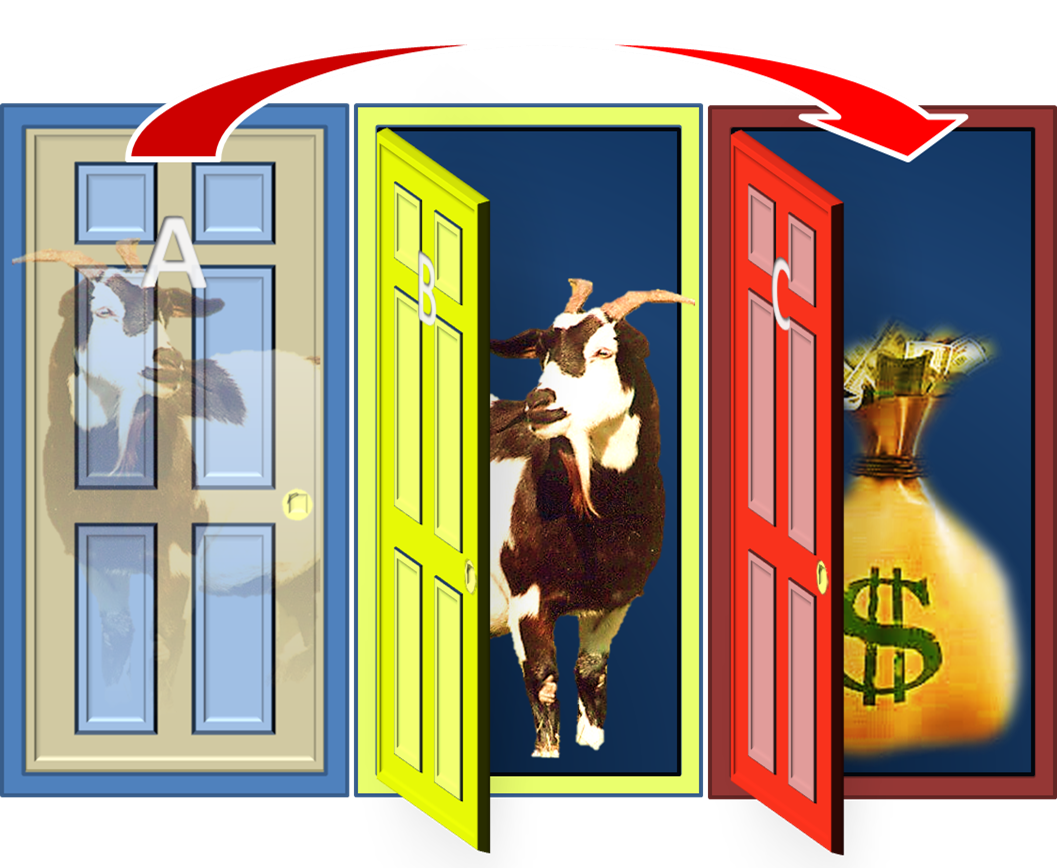
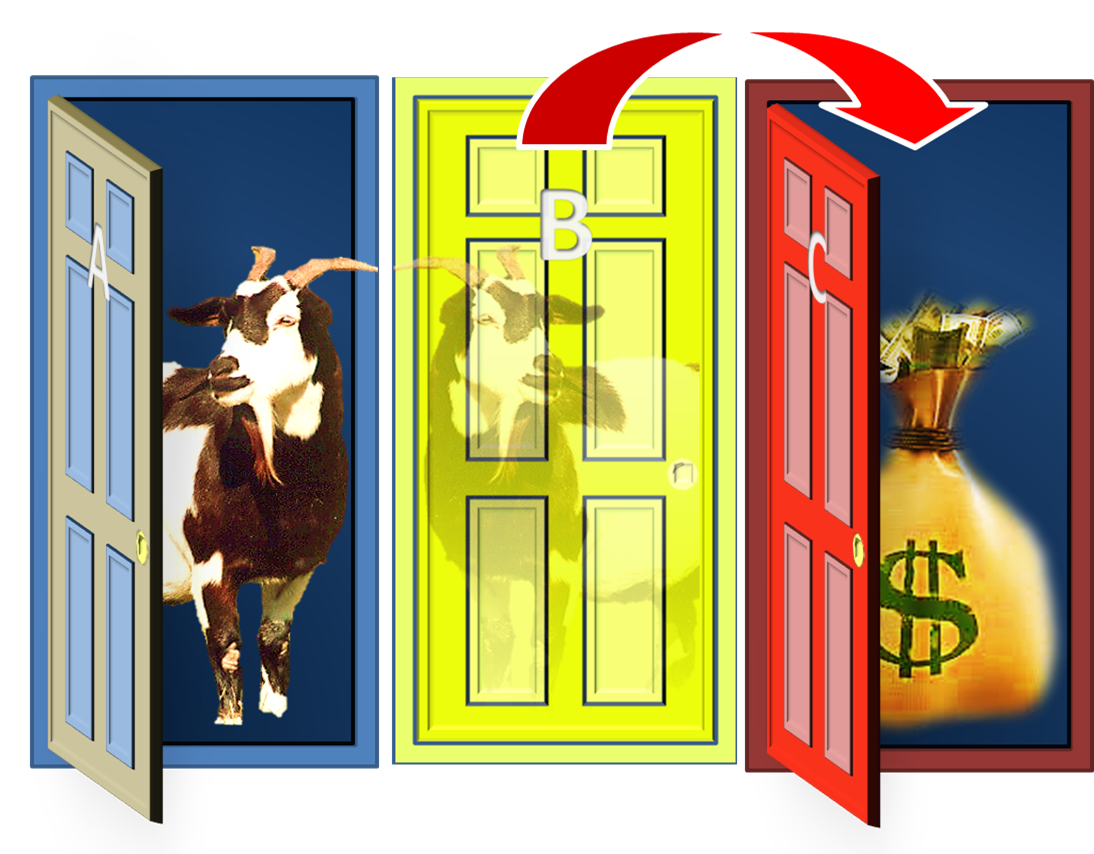
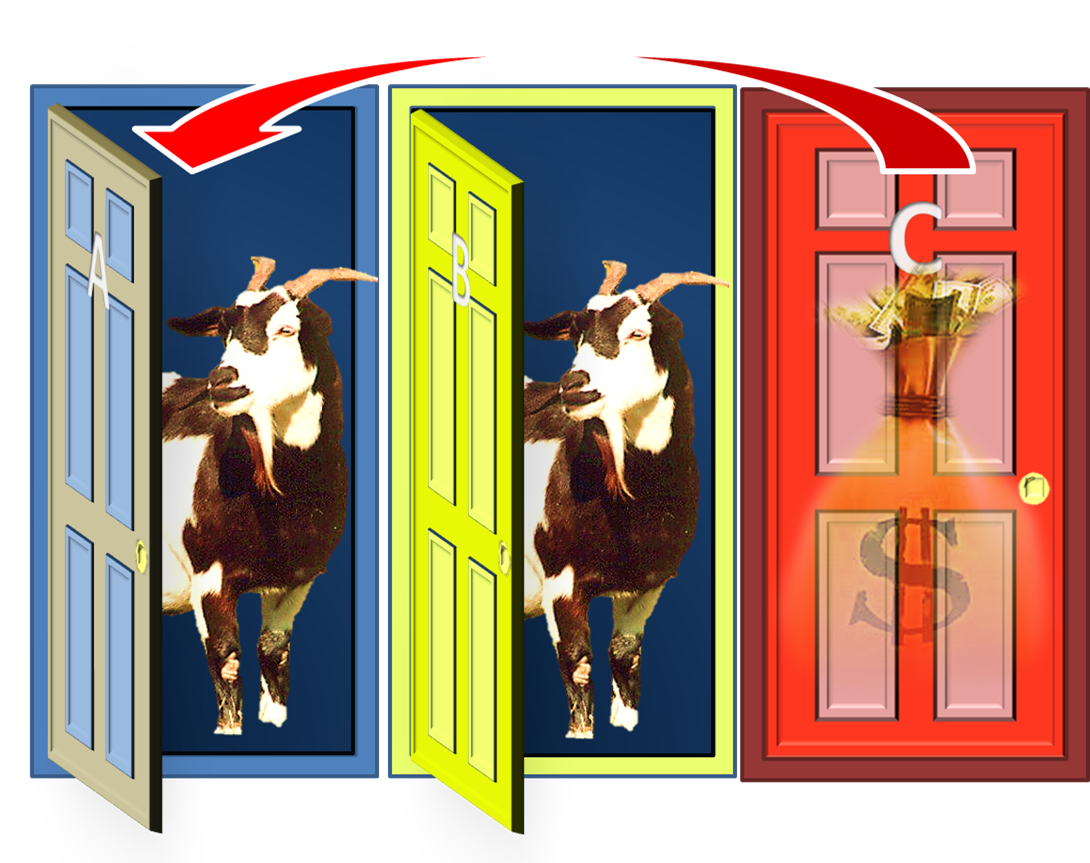
LOSE
WIN
WIN
Probability of winning = 2/3
Another interpretation


every pair of closed
doors has a
2/3 chance of winning

will guess correct door 1/3 of time
best you can do staying
choose wrong door 2/3 of time
remaining door: 2/3 chance of being right
More doors






Switch or stay?








































Variants
"Angelic Monty"
the host offers to switch only when the player has chosen incorrectly
"Monty From Hell"
the host offers to switch only when the player has chosen the winning door
"Ignorant Monty"
the host opens one of the remaining doors at random
switching always wins
switching wins 50% of the time
switching always loses
a good explanation is here: http://nerdland.net/2009/06/monty-hall-is-falling-down/
Lesson Learned
- utilize all information given
- intuition is often incorrect
- mathematics is a way of understanding life

"When the facts change, I change my mind. What do you do, sir?" John Maynard Keynes
Thank you
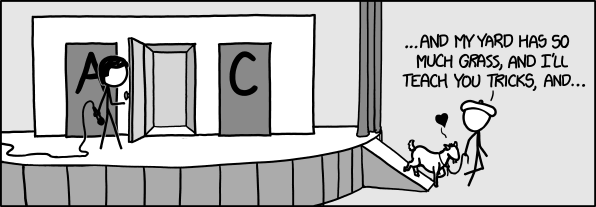
Let's Make a Deal: The Monty Hall Problem
By Chris Miles
Let's Make a Deal: The Monty Hall Problem
A presentation for Science Day at the U 2015 discussing the Monty Hall problem.
- 1,953

